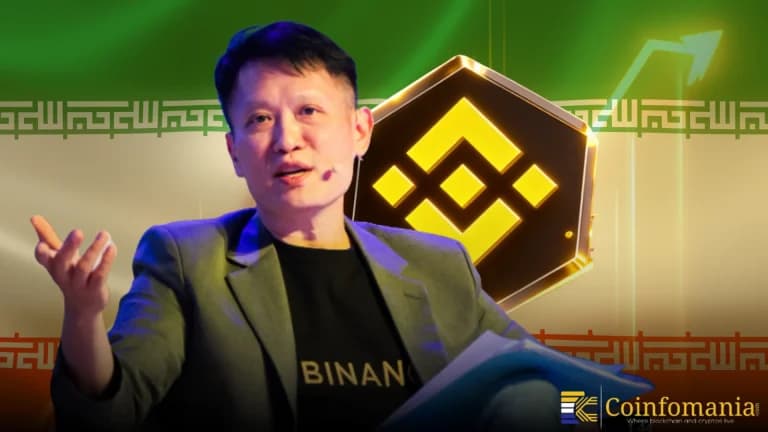Aragon CEO Anthony Leutenegger Responds to Proposal for Replacing ApeCoin DAO with ApeCo, Calling for Rethinking of Decentralized Governance Structures
Dive into the ApeCoin DAO transition as Yuga Labs proposes replacing it with ApeCo amid debates on governance efficiency and structural change.

Quick Take
Summary is AI generated, newsroom reviewed.
Greg Solano’s ApeCo proposal aims to dissolve ApeCoin DAO and replace it with centralized management for faster decision-making.
The proposal outlines legal, operational, and asset transfer steps to shift control from the DAO to ApeCo.
Debate highlights DAO inefficiencies, with supporters arguing ApeCo enables streamlined growth while critics warn of lost decentralization.
On June 6, Anthony Leutenegger, CEO of Aragon, posted on X to voice frustration. He questioned how forums and off-chain signaling became equated with decentralized autonomous organization governance. Leutenegger added, “We’ve built the tools to stop this, but how can we shift everyone’s mental model?” He previously suggested alternatives like smaller subDAOs and protocol upgrade veto rights. His remarks were part of the debates over the role of DAO. The discussion referred to the ApeCo proposal introduced by Yuga Labs CEO Greg Solano. That proposal sought to replace the ApeCoin DAO with a new structure.
Solano Calls for Dissolution of DAO in Favor of ApeCo
In a June 5 X post, Solano described the ApeCoin DAO as inefficient and slow. He argued that slow governance processes limited progress and real projects. The proposal aims to dissolve the existing DAO structure entirely. It intends to replace DAO operations with a new management model under ApeCo. Solano claimed this shift would improve decision speed. He labeled previous governance efforts as low-impact initiatives and theater. Critics noted that some valuable projects still benefited from the DAO model.
The proposal titled “Sunsetting the DAO and Launching ApeCo” described transition steps. It recommended allocating 11.25 million APE tokens to a staking contract. An additional 10 million APE would cover legal and transition costs. All remaining assets would shift from the DAO to ApeCo. This includes tokens, digital infrastructure, and intellectual property rights held by an existing organization. The plan shifts from a tokenholder-driven model to a centralized entity. Yuga Labs would back the new management structure of ApeCo. Supporters argue this approach increases flexibility for future ecosystem growth.
Challenges in DAO Model of Governance Highlight Need for Reform
Advocates pointed to inefficiency and misalignment within ApeCoin DAO governance. They argued that governance became a venue for low-value proposals and political games. Critics said meaningful projects were overshadowed by bureaucratic processes and delays. The ApeCo proposal mentioned funding only high-impact initiatives and cutting waste. It suggested centralized oversight could avoid governance theater and resource inefficiency. Proponents saw potential for faster decision-making and streamlined operations. The proposal did not guarantee the elimination of all decentralized autonomous organization principles. Some pointed out that decentralization benefits could still persist under the new model.
Supporters of the ApeCo system argued that this change enables faster product development. They believed efficient capital allocation would benefit ecosystem growth and innovation. Focus areas would include ApeChain, Bored Ape Yacht Club, and Otherside metaverse. The proposal planned milestone-based grants to ensure accountability and results. Proponents said clear milestones reduce the risk of unfulfilled initiatives and delays. They expected renewed interest from developers, builders, and community members. Some believed centralized oversight could still incorporate community feedback effectively. Backers argued that the streamlined process contrasts favorably with governance delays.
ApeCo Model Under Review as Temperature Check Phase Continues
The proposed ApeCo system remains at the “temperature check” stage on governance platforms. No changes occur until a formal on-chain vote takes place. If approved, it would end the operations of the ApeCoin DAO. Transition planning would focus on ensuring minimal disruption to ongoing projects. Community members awaited details on how ApeCo governance would operate. Observers noted that this shift would influence other NFT ecosystem models. Debate continues over balancing decentralization with efficient management in crypto projects.
What the Ape Coin’s Vote Could Mean for Future DAO Models
The outcome of the proposal holds ramifications for tokenholder engagement. Observers predict similar proposals might emerge in other crypto communities. The debate highlights tensions between decentralization and operational efficiency in evolving blockchain ecosystems. Lessons from this case could inform future DAO designs. Project leaders must balance governance speed with community input carefully. Stakeholders will watch the vote results closely for broader industry trends. The crypto sector continues exploring new governance models amid growth pressures.
Follow us on Google News
Get the latest crypto insights and updates.


